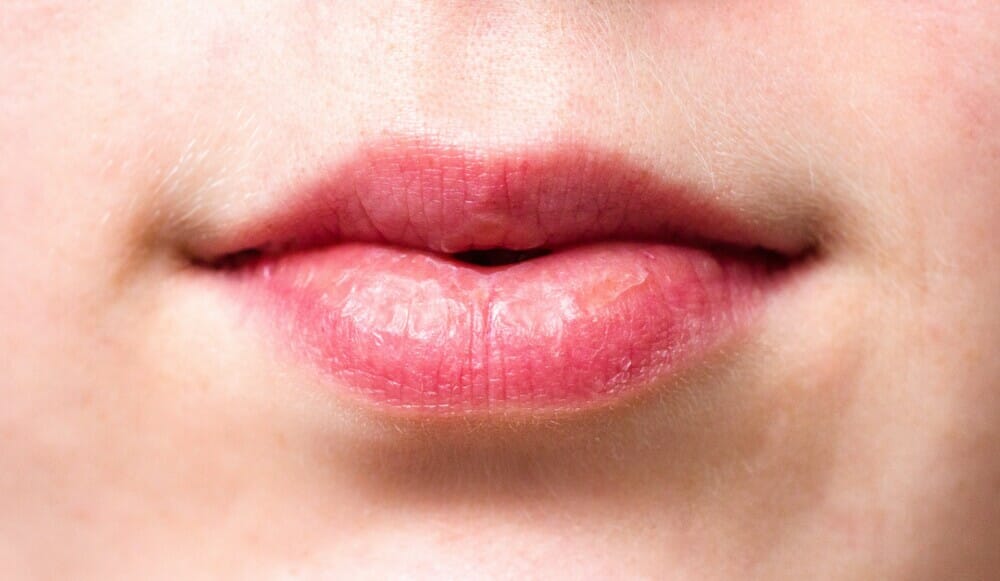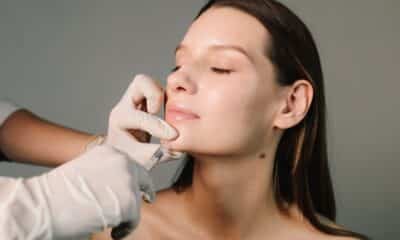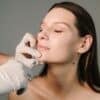Understanding Lick Eczema: Insights from a Dermatologist
Refrain from licking your lips in the dry winter air as it may lead to an uncomfortable condition known as “lick eczema.” This condition, scientifically termed eczematous dermatitis, is caused by the act of licking lips, resulting in dryness, inflammation, redness, scarring, peeling, cracking, itching, and burning, affecting both the lips and the surrounding area.
Unlike typical eczema, this condition is not chronic but is prevalent during winter months due to the dryness caused by cold weather. Moisturizing the lips by licking can create a vicious cycle of wetting and drying, ultimately leading to eczema as explained by a double board-certified plastic surgeon.
Continuous licking of chapped lips exposes them to a wet-dry-wet-dry cycle with saliva, leading to significant inflammation, as stated by a doctor. Since the lip surface lacks oil glands, it lacks natural lubrication, making it susceptible to cracking and deterioration of the skin barrier due to the constant wet-dry cycle of licking.
A board-certified dermatologist adds, “The lips’ skin is thin and delicate, devoid of oil glands found elsewhere on the skin, making them prone to drying out, especially during winter when air humidity decreases, causing increased moisture loss due to evaporation, worsened by exposure to wind.”
Symptoms of lick eczema may also be caused by factors other than lip licking, including traditional eczema or allergic reactions to substances like toothpaste, medicine, or food.
Benefits of Effective Lip Balm
Using an appropriate lip balm can alleviate symptoms of lick eczema, depending on the type of condition. A dermatologist emphasizes, “Treatment involves identifying and eliminating the underlying cause of eczema, with varied treatments based on the specific type of lip eczema present.” “Lip balm or emollients can help soothe the lips and reduce discomfort and inflammation related to lip licking.”
When selecting a lip balm, it is crucial to choose the right product rather than opting for any available lip balm, as advised by a renowned doctor. “Ensure the lip balm contains emollients and occlusives in addition to humectants,” she recommends. This approach ensures a balance as lip balms containing only humectant ingredients can worsen dryness by pulling out moisture in low humidity air conditions, leading to moisture loss and ultimately drier lips.
Look for a formula incorporating hydrators like ceramides, humectants such as hyaluronic acid and glycerin, and occlusives like petrolatum, beeswax, and coconut oil to maintain moisture and prevent its loss.
Furthermore, avoid lip balm ingredients like menthol, alcohol, salicylic acid, and essential oils which can exacerbate dryness and cause irritation.
 Image by Silviarita via Pexabay[/caption>
Image by Silviarita via Pexabay[/caption>
Additional Strategies for Managing Lick Eczema
1. Avoid Licking (and Picking!)
It’s crucial to refrain from licking your dry lips to prevent further drying as advised by a skin specialist. Saliva evaporates quickly, leaving lips even drier. Avoid picking at dry skin around the mouth to promote healing of the delicate skin.
2. Enhance Moisture with a Humidifier
Employing a humidifier at home, especially in the bedroom, can maintain moisture levels, preventing lips from drying out, recommended by dermatologists.
3. Adjust Your Skincare Routine
Choose gentle cleansers and avoid perfumed, dyed, alcohol-based products for lip and facial care. Refrain from harsh exfoliants to allow new skin to develop naturally, and use a moisturizer containing humectants, emollients, and occlusives for proper hydration and skin barrier support.
 Image by Rodolfo Clix via Pexels[/caption>
Image by Rodolfo Clix via Pexels[/caption>
4. Shield Your Skin
Apart from skincare products, protect your lips from external irritants like cold, dry air by covering the area with a scarf or mask when outdoors to mitigate irritation.
5. Consult a Dermatologist
If your lick eczema persists despite trying various remedies, seeking advice from a dermatologist is recommended. They may suggest topical corticosteroids to reduce inflammation, homeopathic mineral formulations like LomaLux tablets, UV light therapy, and antihistamines to alleviate itching.
Featured Image by Anemone123 via Pexabay
















